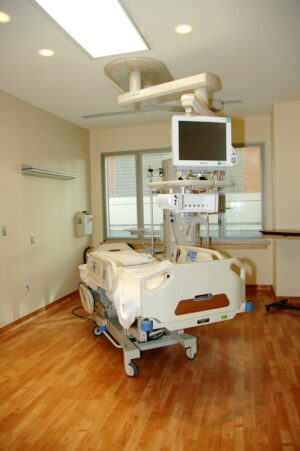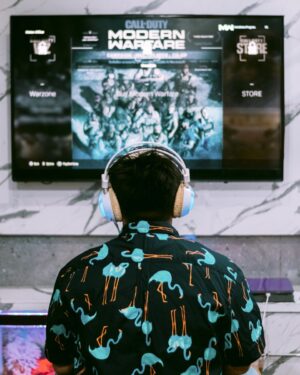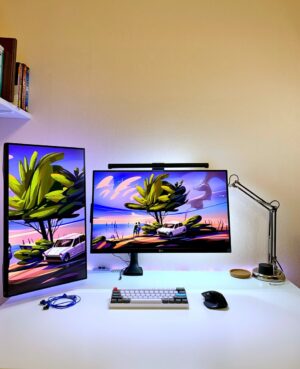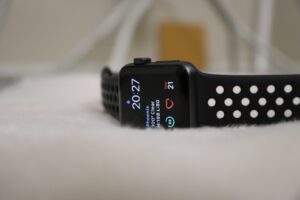Monitoring your computer’s performance is important for ensuring that it runs smoothly and efficiently. But which monitors are the best for this task? In this article, we’ll take a look at five of the best monitors for PC users, based on their features, specs, and user reviews. So read on to learn more about these great monitors!
What are the different types of monitors and what are their benefits?
A monitor is a device that is used to view information on a computer screen. Monitor come in different shapes, sizes, and features, and they can be divided into two main categories: flat-panel monitor and CRT monitor. Flat-panel monitor are newer and more popular and are typically smaller and lighter than CRT monitors. They also have a wider range of colors and resolutions, making them better for displaying images and graphics. CRT monitors are still used by some people because they offer a higher resolution and more accurate color reproduction than flat-panel monitors.
What to look for when buying a monitor
When buying a monitor, there are a few things to consider. Here are four key areas to focus on: size, resolution, refresh rate, and input lag.
When it comes to monitoring size, you need to consider your desk space and what you plan on using the monitor for. The most popular monitors are 24 inches and 27 inches. If you have a large desk or plan on using the monitor for multiple purposes (work and gaming), go for the bigger size. If you only use the monitor for work, go for the smaller size.
Resolution is another important factor to consider. You want a monitor that has a high resolution so images look crisp and clear. Resolution ranges from 1920 x 1080 up to 4K Ultra HD. If you don’t need 4K Ultra HD resolution, go for something lower like 2K or 1440p. Just make sure the resolution is high enough for your needs.
Refresh rate is important if you plan on using the monitor for gaming or watching videos. A good refresh rate is 60Hz or more. Most monitors have a refresh rate of either 60Hz or 120Hz. Some monitors also have a 165Hz refresh rate which is great for
The best monitors for babies
When it comes to selecting the perfect monitor for your baby, there are a lot of factors to consider. Here is a list of the best monitors for babies, based on reviews from parents and experts.
The first thing you need to do is decide what type of monitor you will be using. There are two main types: video monitors and audio monitors. Video monitors display live footage of your baby, while audio monitors simply play white noise when your baby is sleeping or quiet.
Once you have decided which type you want, you need to find the right monitor size for your baby. Most monitors range in size from about 3 inches to 27 inches tall and widths from about 2 inches to 12 inches wide. If you have a large room, go for a larger monitor; if you have a small room, go for a smaller one.
Once you have found the perfect monitor for your baby, the next step is to choose the right type of signal. Most monitors come with both an RF (radio frequency) and an infrared signal. RF signals are faster but can be blocked by some objects; infrared signals are less likely to be blocked but can only be seen by certain devices. If you’re using a video monitor,
The best monitors for toddlers
When it comes to choosing the best monitors for toddlers, there are a few things to consider. First and foremost, you’ll want to make sure that the monitor is appropriate for your child’s age and size. Some monitor are designed for older children or adults, while others are specifically designed for toddlers. You’ll also want to think about what features you’re looking for in a monitor. Some of the most common features include:
-A range of viewing angles
-Large screen sizes
-Multiple viewing modes, such as portrait or landscape
-Adjustable brightness and contrast levels
-Easy access to parental controls
There are many great aitm available on the market today, so it’s important to choose one that meets your specific needs. Some of our favorite monitors for toddlers include the Summer Infant Baby View Video Monitor, the Graco Pack ‘n Play Wireless Video Monitor, and the VTech Safe & Sound Digital Audio Monitor.
The best monitors for kids
There are many options for monitors for kids and it can be difficult to choose the best one. Here are some things to consider when selecting a monitor for a child:
– Display size. Children grow quickly and often change their screen viewing habits as they get older. A monitor with a large display will be more comfortable for them to use.
– Screen resolution. Most monitors have a resolution of at least 1920 x 1080 pixels. This is the standard resolution for most monitors and provides enough detail for kids to view images and videos. If you are looking to buy a monitor specifically for gaming or professional use, consider higher resolutions such as 3840 x 2160 pixels or 4K Ultra HD.
– Features. Some monitors have features that make them more suitable for specific purposes, such as built-in speakers or noise canceling technology. Consider what features your child will use most often and buy a monitor with those features enabled.
– Battery life. Many monitors have long battery lives, allowing them to be used even when the power is out in the home. Look for a monitor with at least six hours of battery life or more so that you can easily keep an eye on your child without having to worry about charging the monitor frequently
The best monitors for adults
There are many different types of it available on the market, but which is the best for adults? Here are some of the key factors to consider when choosing a monitor:
1. Size and Weight
Most monitors are designed to be lightweight and portable, making them easy to carry around. However, some models are larger and heavier than others, so it is important to find one that is comfortable to use.
2. Display Type
There are three main display types used in monitors: CRT, LCD, and OLED. CRT displays are the most common type and have a backlight that helps make images look crisp and clear. LCD monitors tend to be more affordable but may not have as good of image quality as CRT monitors. OLED displays offer the best image quality but can be more expensive than either LCD or CRT monitors.
3. Features and Specs
Some features that are important for monitors include a resolution of at least 1920 x 1080 pixels; a response time of fewer than 5 milliseconds; a color gamut coverage of at least 90% sRGB; and a minimum brightness level of 250 nits. Additionally, some monitors come with features such as an adjustable stand or built-
Conclusion
I’ve compiled a list of the best monitors that are made by companies that understand the needs of an office worker. Whether you’re in need of a monitor for work, school, or gaming, this monitor will give you what you need in a stylish package. With features like ergonomics and great image quality, it’s no wonder these monitor have become so popular among professionals and consumers alike. So which one is your favorite? Let us know in the comments below!



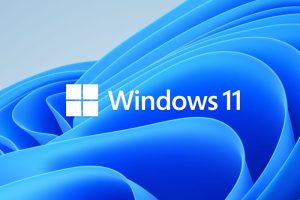



 Many people are perplexed as to why, with the abundance of options, you can’t simply utilize a huge 4K monitor with a Mac. Pixel resolution and brightness are more crucial features than swift refresh rates and response times, which are often included in monitors targeted at PC gamers, because of how display scaling functions in macOS.
Many people are perplexed as to why, with the abundance of options, you can’t simply utilize a huge 4K monitor with a Mac. Pixel resolution and brightness are more crucial features than swift refresh rates and response times, which are often included in monitors targeted at PC gamers, because of how display scaling functions in macOS.





